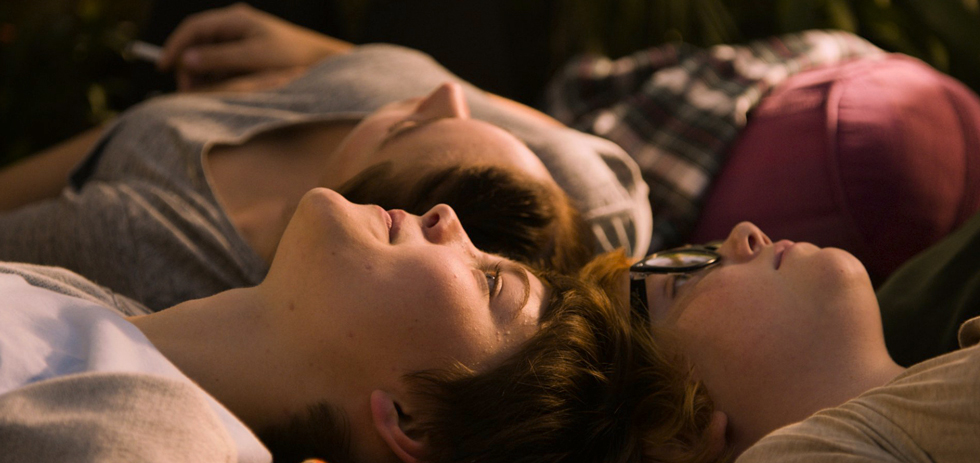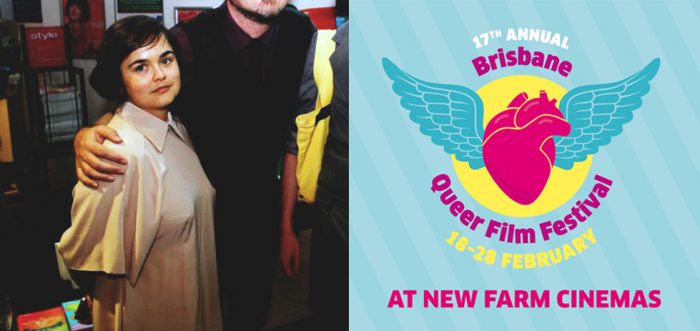In its second year beneath the umbrella of Brisbane’s Queer Arts Festival, Melt, the Brisbane Queer Film Festival is doing two things very well: screening titles that rarely play elsewhere in the city, and programming a higher constituency of foreign films than its Melbourne and Sydney counterparts. But the festival is also run on a shoestring budget, less in scale if not in scope than its rivals, and curator Shannon King does most of her programming research from a computer. We caught up with Shannon to ask how she manages to make a lot from so little.
The Brisbane Queer Film Festival is obviously a lot more compact than that of Melbourne or the Mardi Gras Film Festival in Sydney. Does that allows you to carve out a unique voice for the festival?
It does allow, to a certain degree, a unique voice. It’s also so significantly smaller that you really have to program the best example of that particular type of film, whether it be a drama, a comedy, or anything else like that. For relevance to LGBTQ cinema, you also need to come up with a program that represents it holistically, because you only have a limited number of films. Sydney and Melbourne have up to 70 or 80 films, so there’s obviously a lot of scope there not only for similar kinds of films, but also ones from different countries so they compare and contrast easier. We’re a little bit smaller.
When you see a film, how do you know it’s checking that box?
A lot of the time it’s the story, and whether it pertains directly to a queer audience by way of being having a queer storyline at the forefront. But also the directors, and the cast and crew, and whether they identify as queer as well is quite important in programming something that’s small and to the point. That way, it just feels a little more – I hate to say it – but a little more authentic, to have those voices there being represented.
Things like Carol, The Danish Girl, and About Ray are such big blockbuster films that they perhaps don’t have all those identifying qualities. Ones that are in a queer film festival, meanwhile, are a little more true to form for an LGBT audience.
I’m intrigued that you mentioned Carol given it was directed by Todd Haynes – somebody whose career probably came to fruition through festivals like these ones. Do you tend to look out for emerging directors?
Well, Carol is now so mainstream that it would’ve been released before any of us had a chance to screen it within the context of a queer film festival. I guess I have to go for films that are readily available first and foremost. In Brisbane, one aspect is that we no longer have the Brisbane International Film Festival, so audiences would be missing out on people like Greenaway1 who have made a film based on queer content. With Todd Haynes and Carol, yes that does have very deep roots to the LGBT community because of the novel, and the writer, and I think also a few smaller castmembers in there identify as queer as well. But that one doesn’t need this platform, because it’s so mainstream and the names are so big that it’s already out there. Then again, we occasionally get things like Grandma, which has a huge name director, but won’t be receiving a wide cinema release in Brisbane.2

I wanted to talk a little bit about Grandma. What drew you to that film?
I saw it in Sydney as part of the Queer Screen events they do down there as a precursor to the Mardi Gras Film Festival. That one I picked for many reasons, but the main one is Lily Tomlin – for the kind of woman she is, for the kind of actress she is, and for how out and proud and open she is as well. That was the main identifying factor for me. I believe from reading up on it that Paul Weitz, the director, wrote the film with Tomlin specifically in mind. So having written it for her not only as an older woman but an older lesbian as well makes is impressive – it’s really incredible to see someone cast in a role similar to the person they are in real life. And there’s not much acting involved, really. It’s her being her for the point of telling an older woman’s story.
There’s a recent crop of LGBTQ movies that focus on older couples aren’t there. I’m thinking of things like Ira Sachs’ last movie, Love is Strange, or even Andrew Haigh’s 45 Years, opening next week. What do you think is behind that?
I don’t know. I’m not sure if it’s a sign of the times, of baby boomers ageing, and of the people who started out this movement – and to a degree, this revolution of being young and out and up-and-coming – have maybe now begun to age, as well as all the stories around them.
That could be one thing. For Brisbane specifically as well, we have an older audience that do frequent the festival, so it always makes sense programming-wise to keep these films in mind. There’s always, I think, going to be a trend towards older storylines – even with things like Carol or the Danish Girl – which themselves are incredibly old stories as well. So I’m not sure if it’s continuing on a phase or a trend over the last couple of years, or if it’s a pre-existing theme. I wouldn’t be able to pinpoint it.

I lastly wanted to talk about the process of curating the festival, in particular the lead-up and picking which films will complete each program. Do you travel overseas to queer festivals?
Unfortunately, I’m not able to travel. I would if I could, but as a programmer this festival is so small it really does rely on research – and digital research as opposed to physically being in a certain place at a certain time. But I look very much to Melbourne and Sydney to see what they’re doing, and often what their programs of the year prior included. The internet is so incredible these days that if you have several international distributors that you know of, that you’ve followed for quite a few years, they’re often willing to share ahead of time a lot of their resources with you. Just drawing on a lot of research from a lot of different festivals is the best way to do it. And to be honest, the queer festivals from around the world have an incredible circuit.
For Brisbane, on such a small scale, it really does rely on keeping up to the minute with breaking news on what’s happening in Berlin, or with the Teddy awards and the Queer Palme award, and even the people programming those awards. They often have their own history with regards to how they’ve come to be programmers; you can draw from their experience and see what might work for a Brisbane audience. But ultimately the budget, the timing, and all those other factors need to come together for those two weeks of February.
It sounds like a monumental task. Are there any coups this year you’d like to recommend?
I honestly think Girls Lost is one of the most original storylines I’ve seen in queer cinema for a long time. It’s a Swedish film, and the director has tagged her film as one that’s genderfluid. I haven’t really seen in queer cinema – of late, anyway – that term genderfluid. I know it’s out there and seems to be on everybody’s lips and people are now coming out as genderfluid, but this film is really almost a guide on what some girls are going through in how to identify, and what they’re going through emotionally. It does this in a way that’s part thriller, it’s part trans, there’s a little bit of black humour as well. But all in all it’s a really special thing.
The Brisbane Queer Film Festival runs from the 18th to the 28th of February. You can find more information at the Brisbane Powerhouse website here.
